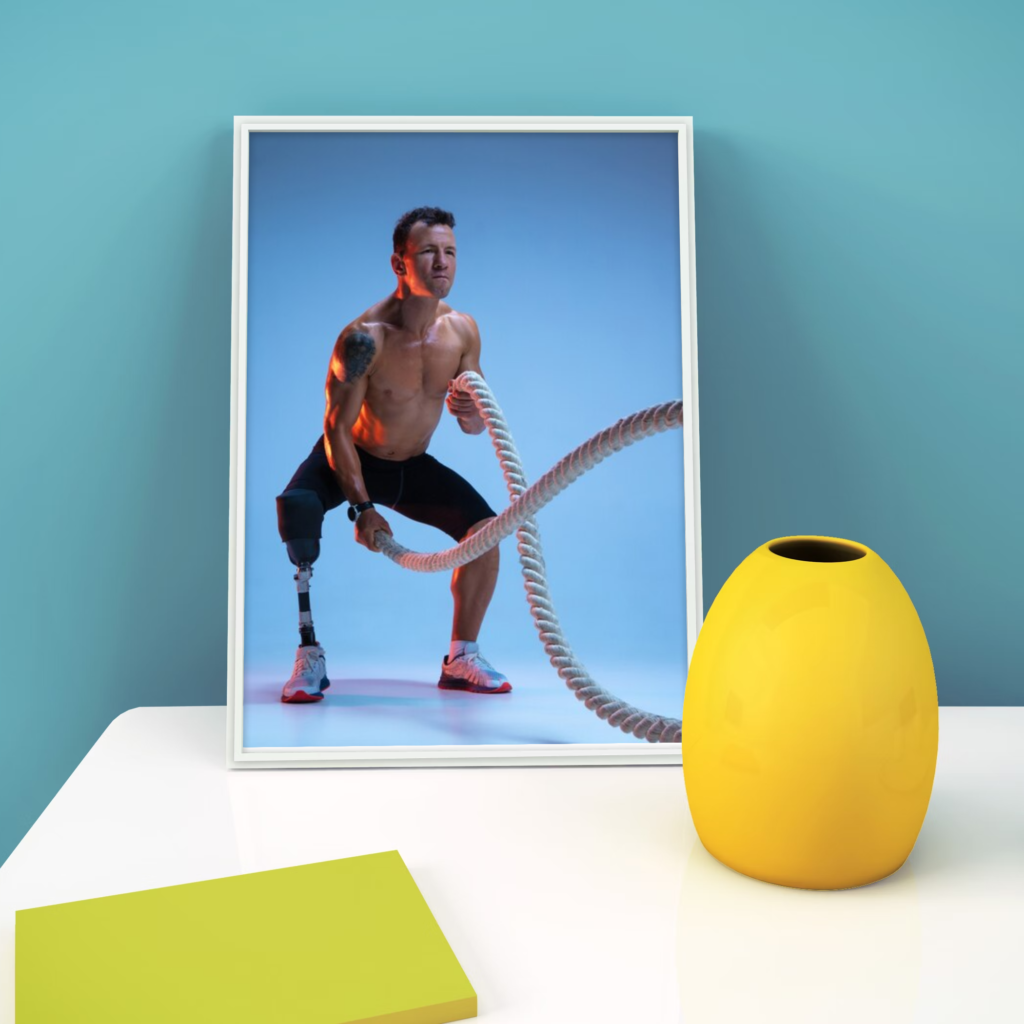
Join us on a compassionate and resilient journey as we explore the topic of post-amputation rehabilitation. Discover the critical role of rehabilitation in restoring physical and emotional well-being for amputees and hear inspiring stories of courage and determination. Explore the significance of creating an inclusive society that prioritizes accessibility and empathy for individuals with limb loss. Join us in recognizing the transformative power of post-amputation rehabilitation and its life-changing potential.
Introduction
As we embark on a heartfelt journey of compassion and resilience, exploring the significance of post-amputation rehabilitation. This is dedicated to shedding light on the transformative impact it has on the lives of countless individuals who have faced limb loss. So, let’s dive in and uncover the essential aspects of post-amputation rehabilitation.
A Life-Altering Reality
Life can take unexpected turns, and for some, it leads to a moment that forever changes their reality—an amputation. As a seasoned professional in prosthetics and orthotics, I had the privilege of witnessing this pivotal instant time and time again. Throughout I will, shares my profound insights and experiences while guiding through the stories of those who have experienced limb loss.
Understanding Post-Amputation Rehabilitation
Post-amputation rehabilitation is a comprehensive and multidisciplinary approach aimed at restoring function, independence, and quality of life for individuals who have undergone limb loss. It involves an integrated approach, combining physical therapy, occupational therapy, emotional support, and assistive technology, all with the ultimate goal of empowering individuals to embrace life after amputation fully.
The Phases of Rehabilitation
To have a holistic perspective of phases of rehabilitation, It all begins with “pre-hab,” a crucial phase where experts work with patients even before the surgical procedure, creating personalized plans to prepare them for the challenges ahead. Subsequent phases include the immediate post-operative phase, pre-prosthetic phase, prosthetic training phase, and community re-entry phase, each serving a unique purpose in the patient’s journey.
Stories of Resilience
As it unfolds, we bring to light the inspiring stories of resilience from individuals who have triumphed over adversity through post-amputation rehabilitation. Meet Arun, whose name has been changed to protect his privacy. Arun once doubted his ability to walk again, but with the unwavering guidance of his rehabilitation team and a remarkable prosthetic limb, he now walks confidently and explores new hobbies. Similarly, Aman’s journey showcases how post-amputation rehabilitation goes beyond physical mobility—it restores self-esteem and reaffirms the possibility of a fulfilling life.
The Emotional Journey
Post-amputation rehabilitation isn’t solely about the physical aspects; it involves addressing the emotional toll of amputation. Patients may experience a range of negative emotions and behaviors, including decreased self-esteem, depression, anxiety, and grief. The psychological difficulties arising from altered perceptions and distorted body image can be daunting. However, I emphasize the crucial role played by mental health professionals, offering invaluable support and adaptive coping mechanisms.
The Role of Support Networks
We acknowledge the indispensable role played by support networks, encompassing family, friends, and communities, in the healing process. Their unwavering encouragement and understanding create a strong foundation for growth and healing. Peer-support groups and organizations like the Amputation Foundation provide invaluable resources and advice, empowering amputees to face the challenges on their journey.
Creating an Inclusive Society
Society plays an equally significant role in fostering an inclusive environment for amputees. Prioritizing accessibility, empathy, rehabilitation services, employment opportunities, and education can help break down barriers. Through awareness campaigns, public events, and educational programs, society can cultivate understanding and acceptance, creating a world where post-amputation rehabilitation is recognized for its transformative impact.
Conclusion
As the episode draws to a close, Peter urges listeners to recognize the profound significance of post-amputation rehabilitation. The journey may be challenging, but with compassion and commitment, individuals can embrace life after limb loss with courage and grace. The podcast and its accompanying blog provide a comprehensive overview of the subject, shedding light on the powerful stories and insights shared in this episode.
Your support and active participation in spreading awareness can create a world where post-amputation rehabilitation thrives, positively impacting countless lives. Let’s us strive together to create an inclusive and compassionate world.
References
- https://www.hopkinsmedicine.org/health/treatment-tests-and-therapies/amputation/amputation-recovery-and-rehabilitation
- https://acrm.org/acrm-news/stages-of-rehabilitation-after-limb-loss/
- https://www.merckmanuals.com/home/fundamentals/rehabilitation/rehabilitation-after-limb-amputation
- https://www.ncbi.nlm.nih.gov/pmc/articles/PMC7786697/
- https://pamhealth.com/company/company-updates/coping-with-limb-loss-tips-and-strategies
- https://www.freepik.com/free-photo/athlete-with-disabilities-amputee-isolated-blue-studio-background-professional-male-sportsman-with-leg-prosthesis-training-with-weights-neon_10055586.htm#query=amputation&position=7&from_view=search&track=sph
I love your blog and find all your posts exactly what I’m looking for.Again, awesome website!
Great site you have here.Quality writing like yours is rare to find these days..
I truly appreciate people like you! Take care!
Great blog post! I truly appreciate this site. Keep it up!